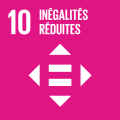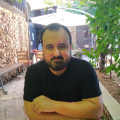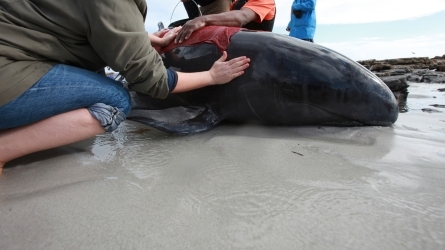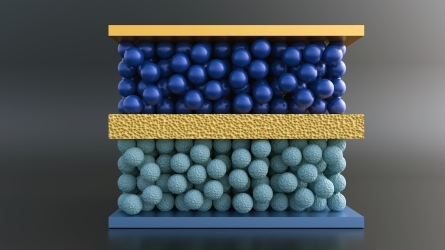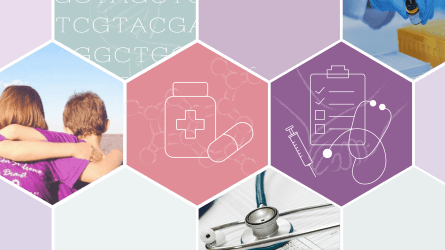
Diagnóstico, tratamiento y manejo del síndrome de Dravet
Description
Enrollment is free thanks to the sponsorship of Dravet Syndrome Foundation.
Dravet syndrome (DS), also known as Severe Myoclonic Epilepsy in Infancy (SMEI), is a severe and disabling neurological disease of genetic origin. Between 80 and 90 percent of affected patients have a mutation in the SCN1A gene. With an incidence of 1 in 16,000 births, DS is included in the group of rare diseases (1/2,500). In Spain it is estimated that there must be around 450-500 patients correctly diagnosed with DS. However, data on the prevalence of the disease suggest that this number should be higher than 1,500.
One of the most visible symptoms in DS is epilepsy, which begins to manifest itself between 4 and 12 months of age. Seizures may initially be mistaken for febrile seizures, which are common in many children. However, unlike febrile seizures, the initial seizures in DS are usually prolonged and difficult to control, leading to status epilepticus and requiring admission to the ICU. At older ages, other types of seizures frequently appear, cognitive delay becomes evident and other neurological disorders and severe behavioral problems appear. Between 15 and 20 percent of people with DS die as a result of the disease.
In Spain there are currently eight Centers, Services and Reference Units of the National Health System for refractory epilepsy, where DS could be included. However, DS is much more than an epilepsy, and its approach must go beyond treating only seizures; DS must be managed from a multidisciplinary point of view, involving health professionals from different areas. Therefore, no center is fully prepared for the complexity and multidisciplinarity involved in the management and treatment of DS. Moreover, according to current Dravet Syndrome Foundation Spain data, the Basque Country is one of the five Spanish Autonomous Communities with the highest rate of underdiagnosis of DS, especially in the group of adult patients.
The Summer Course 'Diagnosis, treatment and management of Dravet syndrome', aimed mainly at students and professional staff in the field of health and life sciences, and organized by the Dravet Syndrome Foundation Spain, raises essential aspects for the correct approach to DS: (1) Description of the signs and symptoms of DS and related epilepsies that can facilitate a clinical and genetic diagnosis, (2) Discussion of emerging treatment options for DS in the context of the current treatment paradigm, and (3) Description of the role of the multidisciplinary team in the management of patients with DS.
Objectives
To introduce students to the knowledge of a disease that, due to its infrequent nature, will be difficult to study during their years of training as future physicians.
To anticipate the education that these students will receive during future training residencies in accredited centers and teaching units for the acquisition of professional competencies specific to their specialty.
To introduce or broaden the knowledge of professional students about a severe disease that is underdiagnosed and not always well attended.
To generate the students' interest in working in the future with a group of patients and families who need prepared professionals to provide them with all the care available.
To generate as well the interest of students to research in DS.
Activity directed to
- University students
- Students not from university
- Professionals
Methodology
This Summer Course is oriented to promote meaningful learning experiences for students, applying active, innovative, participative and close to the students methodological strategies.
Live sessions will be held, which will also be recorded and incorporated into the section enabled for this purpose in Moodle. Once the course has finished, students will have access to the platform for 2 more weeks to download the documentation.
The Course, which will have 6 speakers, will have a total duration of three days (just over 8 hours: 16:00-19:00 W-T and 15:30-18:15 F. Each session will have a maximum duration of 45 minutes, with the first 30 minutes dedicated to the presentation and 15 minutes for questions. The Course Director and/or the moderator will introduce each speaker.
Before the beginning of the classes, students will be provided with all the documentation related to the ZOOM, Moodle and Mentimeter platforms. Students will also have at their disposal, in the Moodle platform, (i) a video presentation in mp4 format explaining through a Power Point the course schedule and activities to be carried out, (ii) the document shown in the video in pdf format, (iii) course schedule, (iv) tutoring and live class schedules, (v) teaching material in pdf format (material presented during the session, literature related to the topics covered in each lecture, additional sources of reference for students to broaden their knowledge, and a list of professionals, institutions, reference societies in each of the aspects presented during the course).
At the beginning of the course, an initial activity will be carried out for the students to start interacting with the platforms and for the teaching staff to detect the students' previous knowledge. This will be done by means of a survey at the beginning of the course on general knowledge about developmental epileptic encephalopathies, DS, human genetics, neurological treatments, etc. The digital tool Mentimeter will be used for this survey.
During the Course, students will acquire new knowledge by connecting it to their previous knowledge. Each block of content will have an associated evaluation so that students can monitor their progress. It will consist of three test-type questionnaires (one per learning block/day) with questions related to the information provided during each content block. The questionnaires will be answered and resolved live, through the Mentimeter tool, during the time established for this purpose before the end of each block.
At the end of the course, what has been learned during the different blocks will be summarized and the contact details and information related to the tutorials made available to the students will be provided. At the end of the course, a final evaluation will be carried out by means of a student satisfaction survey that will be incorporated into the Moodle platform.
Program
07-07-2021
“Registro“Presentation by the Director of the activity
- Elena Cardenal Muñoz | Fundación Síndrome de Dravet - Directora Científica FSD
Institutional Opening session. Speaking order:
- José Ángel Aibar --- | Fundación Síndrome de Dravet - Presidente FSD
“Signos y síntomas del SD. Diagnóstico diferencial con respeto a otras epilepsias relacionadas “
- Susana Boronat | Hospital de la Santa Creu i Sant Pau - Directora del Servicio de Pediatría
Break
“Diagnóstico genético del SD y epilepsias relacionadas“
- Susana Boronat | Hospital de la Santa Creu i Sant Pau - Directora del Servicio de Pediatría
Break
“Retos clínicos a la hora de realizar un diagnóstico“
- Susana Boronat | Hospital de la Santa Creu i Sant Pau - Directora del Servicio de Pediatría
Synthesis
08-07-2021
Presentation by the Director of the activity
- Elena Cardenal Muñoz | Fundación Síndrome de Dravet - Directora Científica FSD
“Enfoques actuales en el tratamiento del SD“
- Vicente Villanueva Haba | Hospital Universitario y Politécnico La Fe - Jefe de la Unidad de Epilepsia Refractaria y del Programa de Cirugía de Epilepsia
Break
“Datos más recientes sobre la eficacia y seguridad de nuevos fármacos. Terapias avanzadas en investigación para SD y papel del paciente en el desarrollo de nuevos tratamientos“
- Patricia Smeyers Durá | Hospital Universitario y Politécnico La Fe - Neuropediatra de la Unidad de Epilepsia Refractaria
- José Ángel Aibar --- | Fundación Síndrome de Dravet - Presidente FSD
Break
“Desafíos clínicos y tratamiento de emergencia“
- Patricia Smeyers Durá | Hospital Universitario y Politécnico La Fe - Neuropediatra de la Unidad de Epilepsia Refractaria
Synthesis
09-07-2021
Presentation by the Director of the activity
- José Ángel Aibar --- | Fundación Síndrome de Dravet - Presidente FSD
“Función de los miembros del equipo central y otros profesionales“
- Eulàlia Turón Viñas | Hospital de la Santa Creu i Sant Pau, Barcelona - Coordinadora de la Unidad de Neuropediatría
Break
“Impacto del enfoque de equipo multidisciplinar en la calidad de vida y bienestar del paciente y su familia“
- Carlos Ruiz García | Hospital de la Santa Creu i Sant Pau, Barcelona - Médico de Atención a la Cronicidad y Cuidados Paliativos Pediátricos
Break
“El papel de las organizaciones de pacientes en el apoyo a las familias“
- José Ángel Aibar --- | Fundación Síndrome de Dravet - Presidente
Synthesis
Closing session
- José Ángel Aibar --- | Fundación Síndrome de Dravet - Presidente
Directors
Jose Ángel Aibar has an international background in both electronics and aerospace engineering, and holds a management position in a leading technology company. One of his children has Dravet syndrome, which gave him the motivation to become involved with the Dravet Syndrome Foundation Spain, where he serves as president and chief executive officer since June 2018.
Elena Cardenal Biologia Molekularrean eta Biomedikuntzan doktorea da. Urte askoz Espainian eta Suizan zientzilari lanean aritu da. Azken urtetan, Elenaren karrera kudeaketa eta komunikazio zientifiko aldera jo du, Life Siences Switzerland (LS2) erakunderako zientzia-zuzendari lanetan, baita erakunde zientifiko anitzetan sare sozialen editore eta kudeatzaile lanetan ere. Gaur egun, Elena Dravet Sindrome Fundazioko Ikerketa Zuzendaria da, gaixo erakunde honek martxan jarritako zientzia eta medikuntza jarduera guztien plangintza, antolakuntza, sustapena eta zuzendaritzaz arduratuz.
Speakers
Jose Ángel Aibar has an international background in both electronics and aerospace engineering, and holds a management position in a leading technology company. One of his children has Dravet syndrome, which gave him the motivation to become involved with the Dravet Syndrome Foundation Spain, where he serves as president and chief executive officer since June 2018.

Susana Boronat
Susana Boronat MD, PhD, was trained as a pedriatic neurologist in Vall d-Hebron hospital, in Barcelona, where later she did most of her neuropedriatic clinic work, specializing herself in dismophologic syndroms and genetic based neurologic illnesses. She undertook her PhD on type 1 Chiari malformation at the Universitat Autònoma de Barcelona. From 2011 to 2013 she carried out a clinic investigation fellowship in Massachusetts General Hospital, in Boston, at the children epilepsy and tuberous sclerosis department, directed by Dr. Elisabeth Thiele, and completed her education in research, neurogenetics and dysmorphology in Harvard University. From 2016 to 2018, she worked as a clinic geneticist at the Vall d’Hebron hospital Genetics Unit. Since 2018 she is the pediatric director of la Santa Creu i Sant Pau hospital in Barcelona. She keeps working as a neuropedriatist and clinic geneticist, focusing on genetic based epilepsy.
Elena Cardenal Biologia Molekularrean eta Biomedikuntzan doktorea da. Urte askoz Espainian eta Suizan zientzilari lanean aritu da. Azken urtetan, Elenaren karrera kudeaketa eta komunikazio zientifiko aldera jo du, Life Siences Switzerland (LS2) erakunderako zientzia-zuzendari lanetan, baita erakunde zientifiko anitzetan sare sozialen editore eta kudeatzaile lanetan ere. Gaur egun, Elena Dravet Sindrome Fundazioko Ikerketa Zuzendaria da, gaixo erakunde honek martxan jarritako zientzia eta medikuntza jarduera guztien plangintza, antolakuntza, sustapena eta zuzendaritzaz arduratuz.

Carlos Ruiz García
Pediatrician specialized in pediatric palliative care, home hospitalization and neuropediatrics. Member of the Spanish Association of Pediatrics, Spanish Society of Neuropediatrics and Spanish Society of Pediatric Palliative Care. PROFESSIONAL CAREER - Pediatric Palliative Care and Chronic Care Team, Neuropediatrics Section - Hospital de la Santa Creu i Sant Pau, Barcelona (June 2020 - present). - Palliative Care and Complex Chronic Patient Service (C2P2) - Hospital Univ. Sant Joan de Deu, Esplugues de Llobregat (Nov 2020 - Jan 2021) TRAINING - University Master's Degree in Pediatric Palliative Care - Univ. Internacional de la Rioja - INTERNSHIP RESIDENT SPECIALIST Hospital Univ. Clínico San Cecilio, Granada (May 2016 - May 2020) o Sub-specialization in neuropediatrics and pediatric palliative care. o External rotations in U. Comprehensive Palliative Care in HU Infantil Niño Jesús and U. Pediatric Complex Pathology in HU La Paz, Madrid.
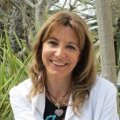
Patricia Smeyers Durá
Dr. Patricia Smeyers is a Child Neurologist at of Hospital Univ. y Politécnico La Fe in Valencia, being the head of the pediatric section of the Multidisciplinary Functional Unit CESUR of Refractory Epilepsy and Epilepsy Surgery. PhD in Medical Genetics and awarded with the Extraordinary Prize by the University of Valencia for her Doctoral Thesis on Clinical Molecular Genetics of Friedreich's Ataxia, contributing to the isolation of the responsible gene. Neurology, Pediatrics and Clinical Neurophysiology specialist, she made training stays in epilepsy at King's College Hospital in London (UK) and at the University of Göteborg (SE). With a Childcare degree and a Clinic Neuropsychology PhD. In addition to her dedication to a lot of scientific activities of interest in the field of refractory epilepsies of genetic origin, her social involvement stands out with the publication of children's stories to understand epilepsy, a work awarded in 2011 by the Spanish Society of Neurology (SEN).
Eulàlia Turón Viñas
EDUCATIONAL BACKGROUND Degree: Medicine and Surgery from the University of Barcelona (UB) (1996-2002). Specialist degree: Pediatrics and its specific areas. Hospital Sant Pau (2003-2007). Master in Neuropediatrics by the University of Barcelona. Sant Joan de Déu Hospital (2008-2010). Doctorate in the Pediatrics, Obstetrics and Preventive Medicine and Public Health program at the Universitat Autònoma de Barcelona (UAB) September 2020. Epilepsy Fellowship at Hospital del Mar (2020 – 2021) PROFESSIONAL EXPERIENCE Pediatrician specialized in Neuropediatrics and Pediatric Critical Care. Management of pediatric neurocritical patient. Coordinator of the Neuropediatrics Unit at Hospital Sant Pau. Coordinator of the Epilepsy Unit’s pediatrics section at Hospital del Mar – Hospital Sant Pau Associate Professor of the Degree of Medicine of the UAB, of the Master of Neuropsychology of the UAB - Hospital Sant Pau and of the Master of Pediatric Nursing of the UB - Hospital Bellvitge.
Vicente Villanueva Haba
Vicente Villanueva MD, PhD, is a neurologist in Hospital La Fe, Valencia, since 2004. Since 2005 he also works at the La Fe Multidisciplinary Epilepsy Unit, where he is Head of the Refractory Epilepsy Unit and Epilepsy Surgery Programme. He serves as a representative of the European Reference Network Epi-CARE and is a member of the ILAE Intellectual Disability Task Force. He is an Associate Professor of Neurology at the Univ. of Valencia since 2017. Dr Villanueva undertook his training at Fundación Jiménez Diaz in Madrid (ES), Epilepsy Center of Univ. of Alabama (US), Epilepsy Center of New York Univ. (US) and Hôpital Saint-Vincent de Paul in Paris (FR). His current research interests include refractory epilepsy, video-EEG monitoring, and epilepsy clinical trials and surgery. Vicente is a member of the EEG board and the Epilepsy Guidelines Board of the Spanish Neurological Society, which awarded him in 2014 with the Scientific Prize in epilepsy and author of more than 100 articles about epilepsy.
Registration fees
| Live online | Until 07-07-2021 |
|---|---|
| 0 EUR |
Venue
Live online
Live online
Sustainable development goals
Agenda 2030 is the new international development agenda approved in September 2015 by the United Nations. This agenda aims to be an instrument to favour sustainable human development all over the planet, and its main pillars are the eradication of poverty, a reduction in equality and vulnerability and fostering sustainability. It is a unique opportunity to transform the world up to 2030 and guarantee human rights for all.

3 - Good health and well-being
Guarantee a healthy life and foster the well-being of all people of all ages. Key issues: universal healthcare coverage, sexual and reproductive health, reduction in the number of road accident casualties, pollution and chemical products, reduction in maternal and neonatal mortality, the end of epidemics such as AIDS, combating hepatitis and other water-borne diseases, drug and alcohol prevention, control of tobacco.
More information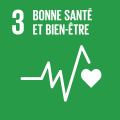
4 - Quality education
Guarantee quality education that is inclusive and equitable and foster opportunities for lifelong learning for everyone. Key issues: free-of-charge, equitable and quality education, access to higher education and training on an equal basis, education for sustainable development, suitable education centres for persons with disabilities, and safe, non-violent and efficient learning environments.
More information
5 - Gender equality
Achieve gender equality and empower all women and young girls. Key issues: the end of all forms of discrimination and violence, recognition of unpaid care and domestic work, shared responsibility, equal opportunities, full and effective participation in reproductive rights, equal rights vis-à-vis economic resources, access to land and other assets and ownership.
More information
10 - Reduced inequalities
Reduce inequality in countries and between them. Key issues: promotion of the social, economic and political inclusion of all people, equal opportunities, fiscal, wage and social protection policies to favour equality, migration and the policies that affect it, official assistance for the development, regulation and supervision of world institutions and markets.
More information